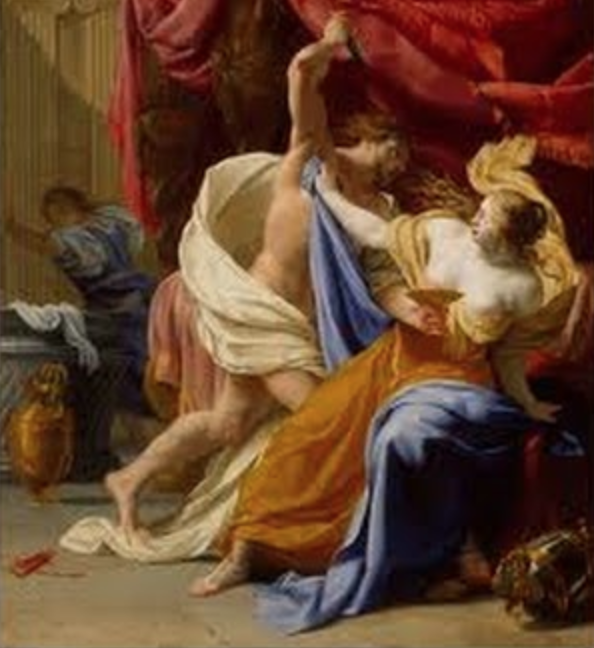God, We See in Sacred Story

God, We See in Sacred Story
BEACH SPRING 8.7.8.7 D (“God Whose Giving Knows No Ending”)
God, we see in sacred story women suffering silent pain,
Living at the whim and mercy of the ones who troubled them.
What does history know of Dinah? Was she bold and smart and strong?
We just know her as the victim of a most horrendous wrong.
What of all the countless women used as slave or gift or prize?
Some were barely more than children when they learned what power buys.
What of women who were summoned? What of women cast aside?
What of those who faced oppression — their humanity denied?
We’ve heard stories from the women who have blessed us on our way —
Ones who managed to keep going when abusers won the day.
Some were told to just say nothing; some were told they were at fault
When — at work or home or meeting — they faced trouble and assault.
As in days of old it happened, so we know this still is true:
Women daily face oppression; many still proclaim, “Me too!”
God, we pray for hurting women, and, by grace, O God, may we
Build a world where every person lives in peace and dignity.
Biblical References: Genesis 34, 12, 20, 19; Esther 2, 1
Tune: The Sacred Harp, 1844; attributed to Benjamin Franklin White (“God Whose Giving Knows No Ending”) (MIDI)
Text: Copyright © 2017 by Carolyn Winfrey Gillette. All rights reserved.
Email: bcgillette@comcast.net New Hymns: www.carolynshymns.com/
Hymn Use Permission: This hymn is copyrighted and is not covered by any organization (such as CCLI or OneLicense) that gives churches permission to use church music. If you would like to use this hymn, please contact Carolyn and Bruce Gillette (bcgillette@comcast.net) for permission and to get a copy of the hymn in MS Word format for bulletin use. See also A Dozen Ways to Support Carolyn’s Hymn Writing.
Hymn Note for “God, We See in Sacred Story”
Remember the stories of Dinah (in Genesis 34, she was raped), Sarah (twice, in Genesis 12 and Genesis 20, Abraham said she was his sister, not his wife, putting Sarah at risk), Esther (in Esther 2, she was summoned to the king), Vashti (in Esther 1, she was sent away for boldly saying “No” to the same king’s attempts to humiliate her), Lot’s daughters (in Genesis 19, Lot offered them to some violent townspeople to be raped, though the angels of the Lord saved them) and countless women in the Bible who were seen as the property of men.
Remember people you know who have been raped, assaulted and harassed.
Remember women today who are told, based on misinterpretations of the Bible, that they must submit to men — including to violence and assault.
Remember women who are not believed when they dare to tell their stories.
Remember all who say, “Me, too!”
The good news is that none of these women are defined solely by the violence and oppression they face; every one has an identity as a child of God, loved by God, made in God’s image.
May this hymn be a prayer that we will commit to building a better world for our mothers, sisters and daughters, in all cultures and places.
